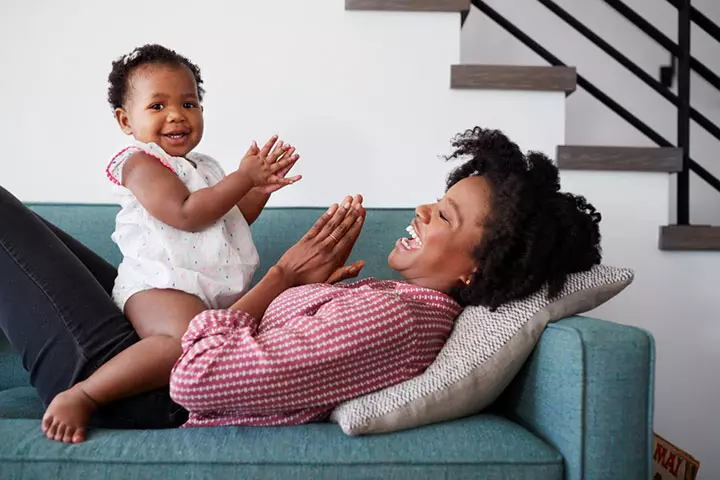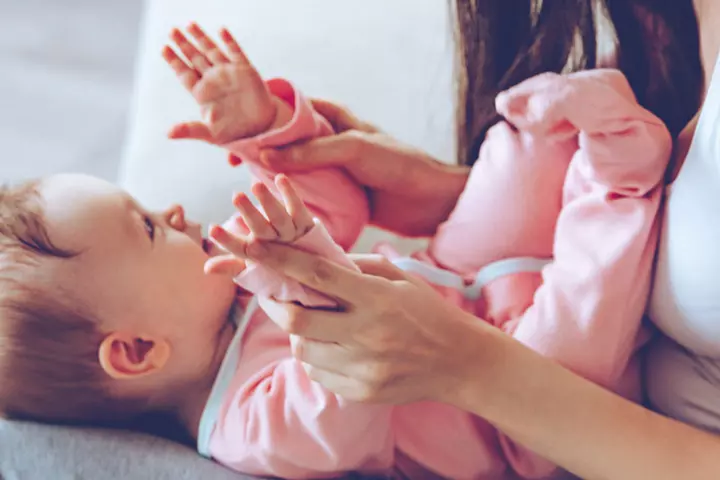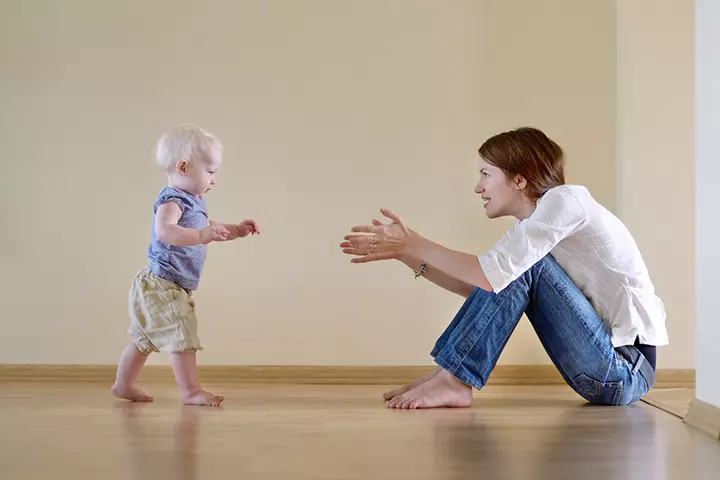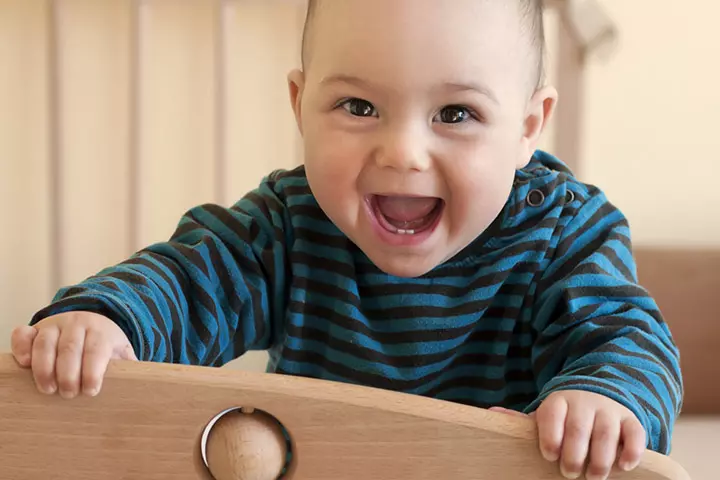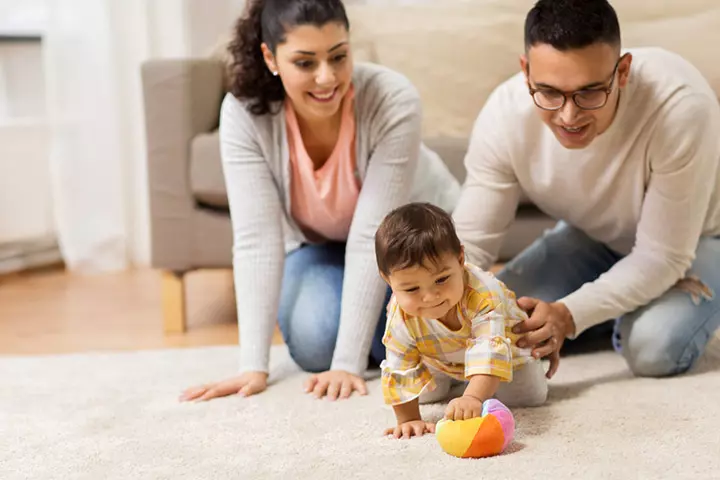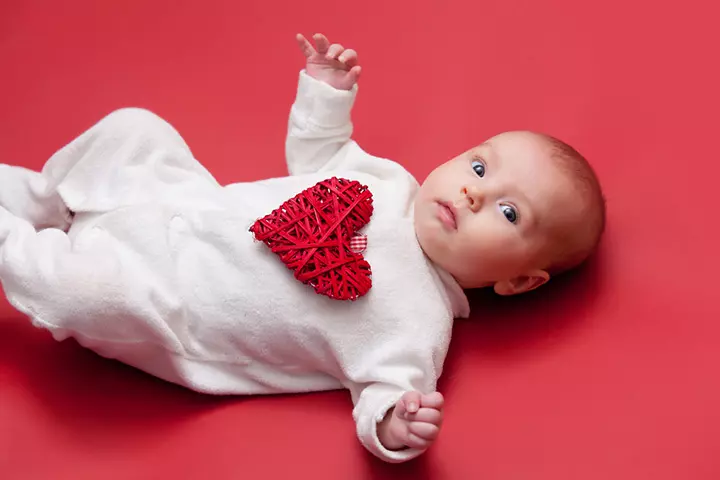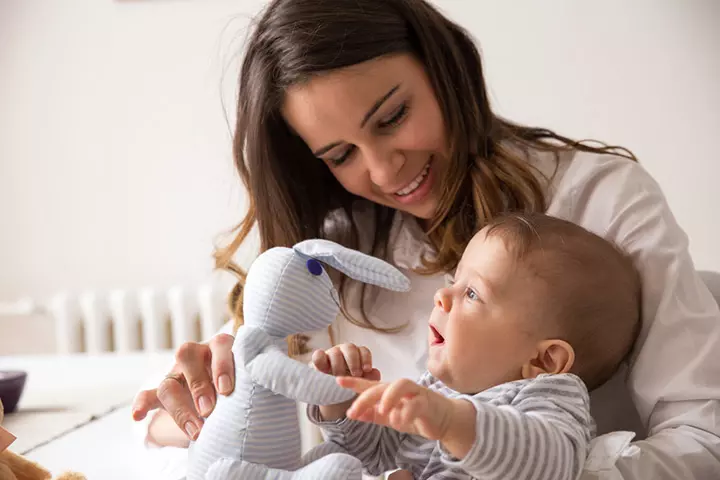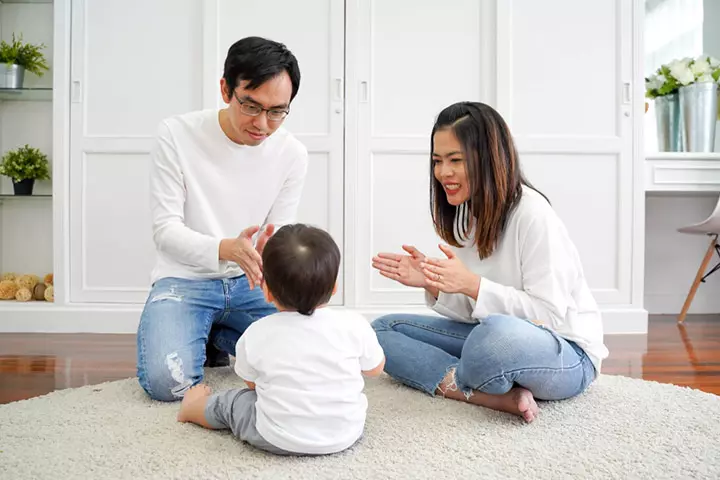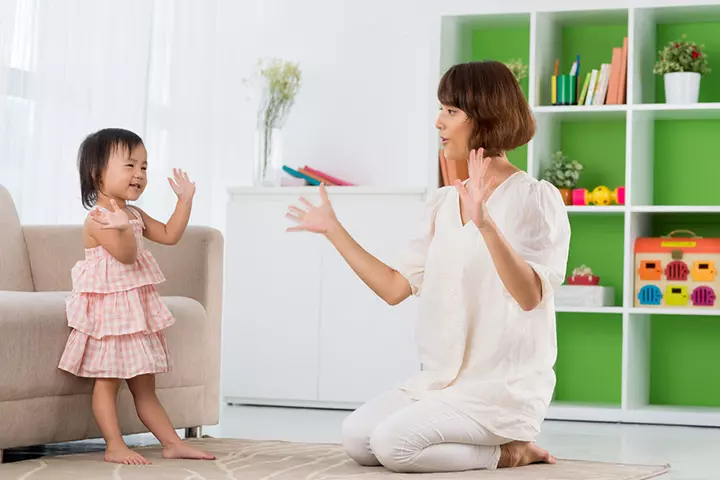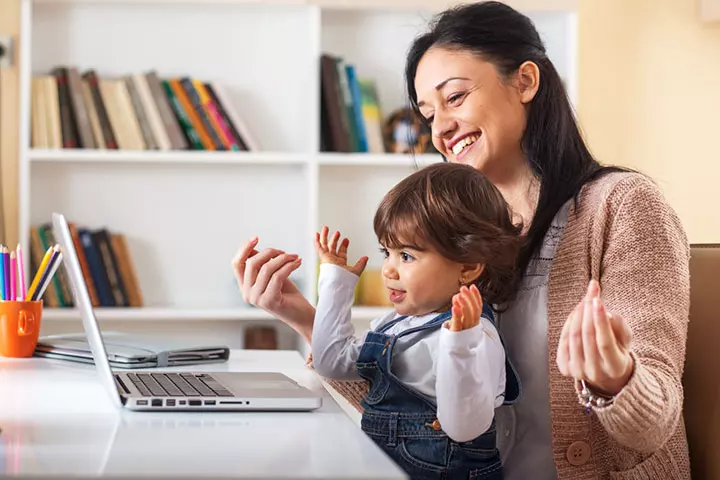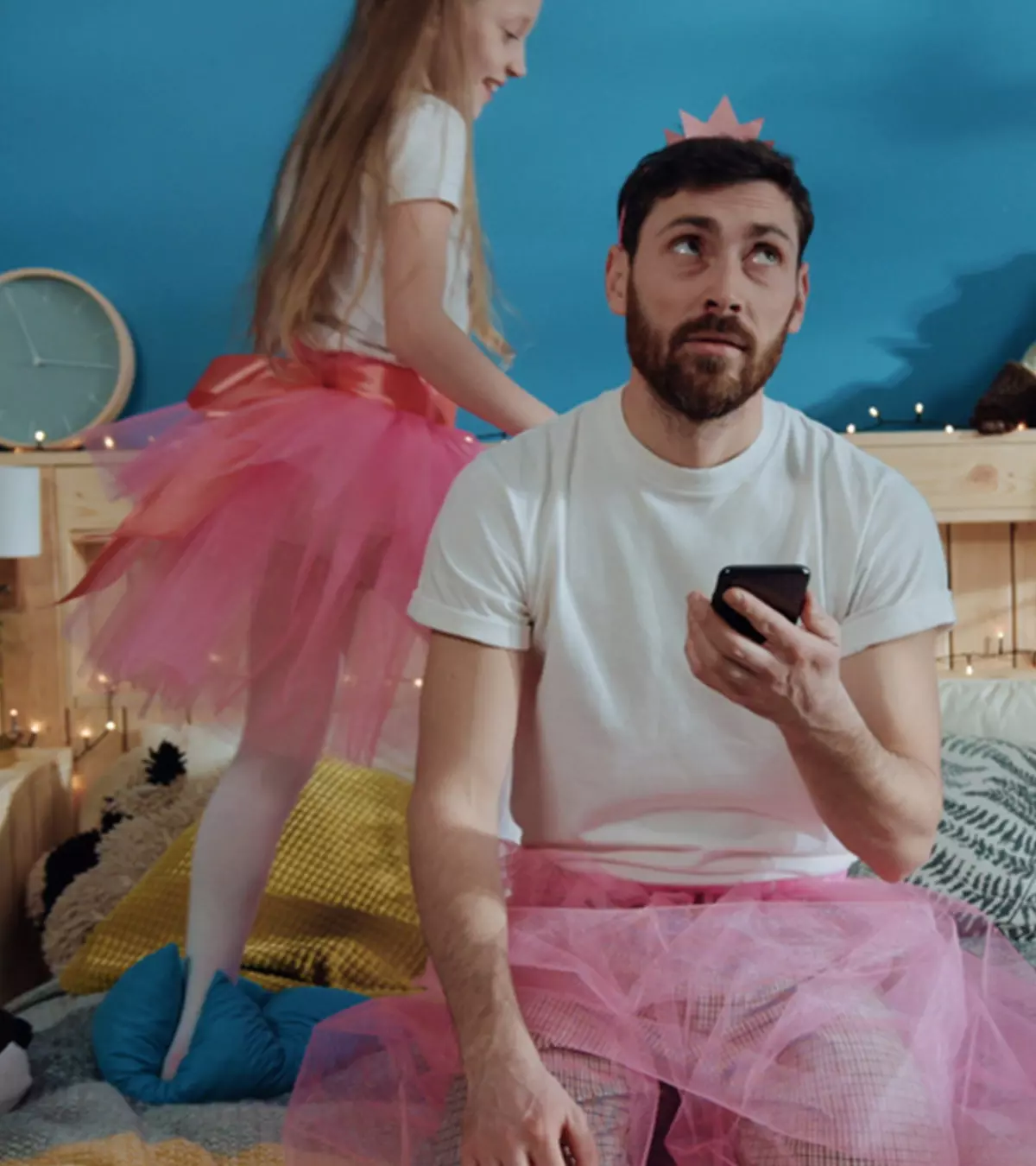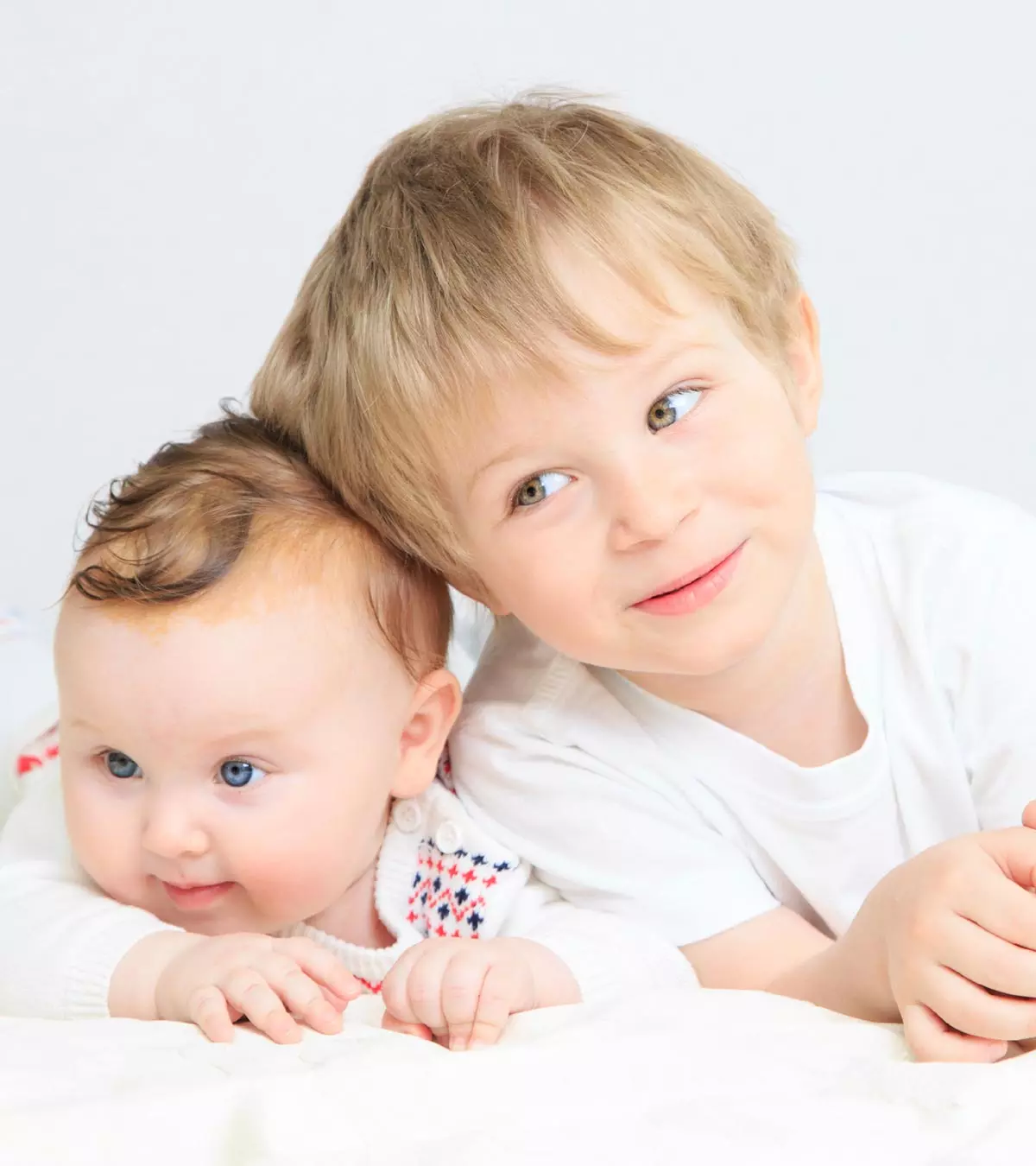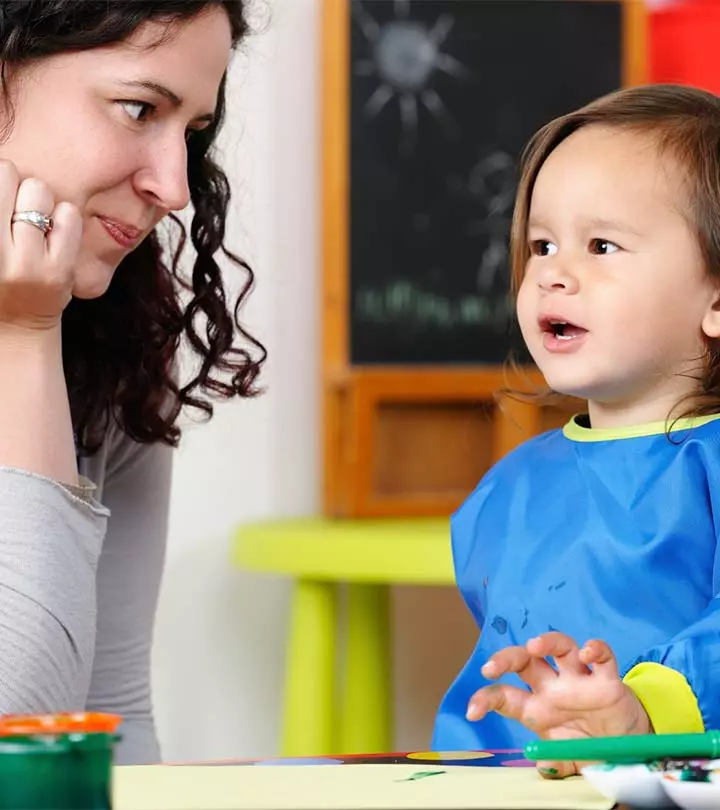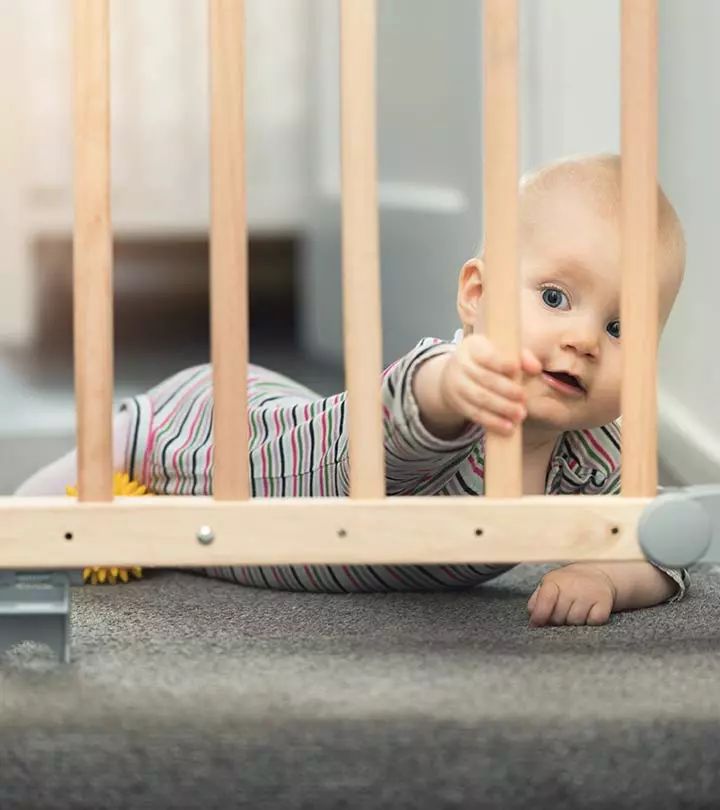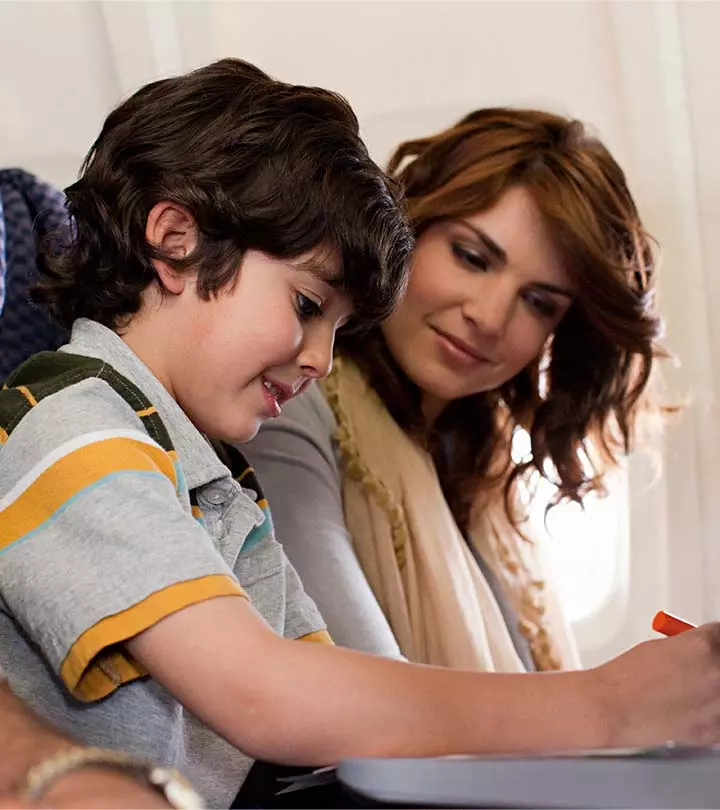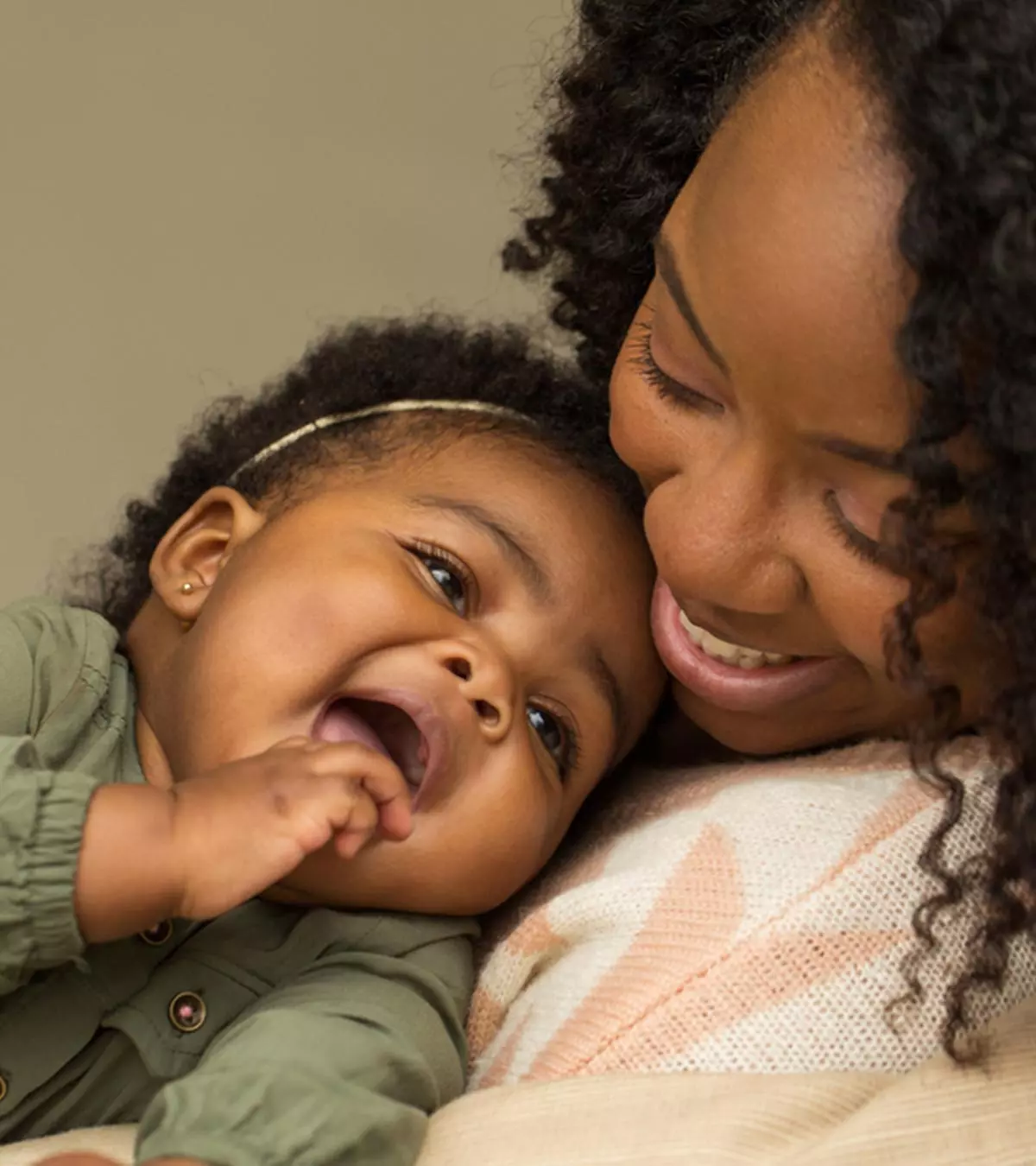

Image: Shutterstock
Clapping is a gesture made by human beings to show appreciation, approval, or praise. It is also an action that indicates celebration, excitement, and admiration. These are the things we know about clapping. But what else does it signify? Clapping is an indicator of good motor skills and good physical and cognitive functioning. All this is for human beings and adults in general. But what about babies? When do babies start clapping and what causes this action in them?

When a baby is born, parents are constantly monitoring them. They pay attention to every new action the baby does to understand if they are healthy and on track. A baby’s development generally follows a timeline in the first year of being born. Every few months, a baby crosses a certain milestone and parents eagerly wait for these moments.
Clapping: When Does It Happen?
Image: Shutterstock
From the ages of 4 to 6 months, babies become more aware of their surroundings. During these months infants start to roll over, babble which is often called baby talk and even start to clap (1). Some studies even suggest that newborn babies who are just about 2-3 days old can detect beats in music. Known as “beat induction”, this phenomenon is unique to human beings where newborn infants are able to recognize the rhythm of the music. It also enables actions like clapping (2). However, they don’t completely clap but it happens in stages. You will notice varying degrees of movements as they grow and learn.
Image: Shutterstock
You could also put your hands together and show your baby how to clap so your baby can imitate you. After your baby is born, he/she is still growing and developing skills. Just like cognitive skills and motor skills, dexterity is a skill that your child develops with time and age. Some exercises help too. So let’s look at why it’s important that your child learns to clap.
Why Are These Milestones Important?
Image: Shutterstock
As your baby becomes 3-4 months old, they become more aware of their surroundings. From a song you sing to recognizing your face and touch, your baby learns and picks up things fast. As parents, these are milestones that you are delighted to cross with your child. So let’s look at some of the reasons why these milestones are important as your baby grows:
1. Fine Motor Skills
Image: Shutterstock
Your baby moves his/her hands and legs more now. They are constantly kicking and wiggling. By the age of 4-6 months, a baby rolls over on their stomach and even starts to raise their heads when lying face down. By this time, babies gain more muscle strength and even push themselves up (3).
2. Hand-Eye Coordination
Image: Shutterstock
One of the most fulfilling and heartwarming moments for a parent is when your baby grabs your finger. They even grab on to soft objects or a rattle. This is the stage when you have to be extra vigilant because your baby might put anything and everything in their mouth. If it’s within their reach, they will put it in their mouth (4).
3. Improved Vision
Image: Shutterstock
Another milestone for your baby is when they slowly start to recognize colors. They start to get fascinated by complex patterns, shapes, and designs. Have you ever noticed your baby staring into a mirror wondering what they are seeing? It’s quite entertaining to watch their expressions. Put a mirror in front of your baby. Give it a try (5).
4. Baby Talk
Image: Shutterstock
Babies around the age of 4 months start to make sounds, babble a few consonants, and even slowly respond to certain words. They might even begin to understand your tone of voice and pick up on emotions and expressions slightly (6).
How To Encourage These Milestones?
Now that you know what the milestones are and how important it is, let’s look at some ways in which you can encourage your baby to reach them:
1. Play With Your Baby
Image: Shutterstock
You could engage your baby by playing with them. Action songs and games that involve the clapping motion improves the chances of teaching your baby to clap. Smile for your baby and encourage your baby to participate. You could also sing for them.
2. Clap For Your Baby
Image: Shutterstock
When your baby does something new, clap for her. Do this often to show appreciation for your baby. They pick up on what you do faster than you think.
3. Sing And Clap
Image: Shutterstock
One of the best ways to encourage your babies to participate is to sing and clap along. You gotta agree it’s fun and it pumps you up. As you keep doing this, your baby might get excited and imitate your clapping action whenever he/she hears the songs.
4. Demonstrate The Clap
Image: Shutterstock
Your baby might want to clap but might not be sure how to. You can place your baby on your lap, gently hold their hands, and demonstrate the action for them. If you feel your baby is stuck, doing this makes them pick it up fast.
While all these moments are great milestones for parents, there are a few things you can do to improve these skills in your baby. Experts say that talking, reading, and singing to your baby helps improve their ability to understand. Even taking time to cuddle with your baby makes them feel loved, secure, and safe. Comment below and let us know how you spend time with your infant.
Community Experiences
Join the conversation and become a part of our nurturing community! Share your stories, experiences, and insights to connect with fellow parents.

